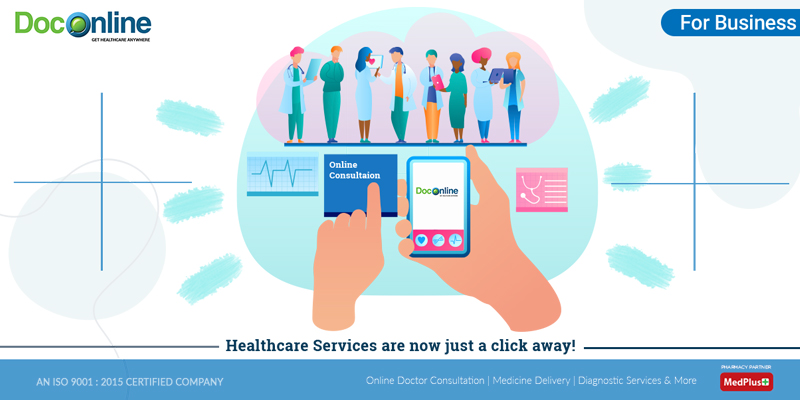Exploring the Growth of Subscription Based Healthcare in the Digital Age
Exploring the Growth of Subscription Based Healthcare in the Digital Age
Blog Article
The Increase of Subscription-Based Healthcare and Its Influence on Individual Care
As medical care develops, the subscription-based design is obtaining traction, guaranteeing to reinvent individual care by supplying predictability and access. These models, which bypass standard insurance coverage, might redefine the patient-doctor dynamic, emphasizing tailored and preventative care. Yet, as with any technology, they offer obstacles, specifically worrying fair gain access to for all socioeconomic teams. The potential for these versions to reshape health care shipment raises pushing inquiries about their long-term sustainability and inclusivity. Are these membership solutions the future of health care, or do they run the risk of leaving at risk populaces behind? The intricacies of this shift warrant a better examination.
Recognizing Membership Healthcare Versions
Grasping the idea of subscription medical care models involves examining a transformative strategy to clinical services that emphasizes affordability and availability. These models, often referred to as direct primary treatment (DPC) or concierge medication, have become ingenious options to traditional fee-for-service healthcare systems. Registration health care allows people to pay a fixed regular monthly or yearly fee for a specified set of medical services, which might include unlimited office sees, routine exams, and fundamental laboratory tests, without the demand for standard insurance coverage payment.
The framework of registration healthcare versions is designed to improve client care by getting rid of third-party payers and intricate billing codes, consequently decreasing management worries. Medical care companies can focus extra on patient care, cultivating more powerful patient-provider connections. This model also promotes preventative care by urging normal check outs, as the financial obstacle of per-visit fees is gotten rid of.
The registration version frequently equips health care service providers to handle smaller sized individual panels, enabling more personalized care. It straightens economic rewards with individual health and wellness end results, as providers are inspired to maintain patient fulfillment and health. Generally, comprehending membership medical care models needs identifying their possible to improve just how treatment is supplied and accessed.
Benefits for People and Providers

For service providers, subscription-based models provide the chance to grow patient-provider relationships. With a constant income stream, health care professionals can dedicate more time to each client, leading to a much more complete and personalized care experience. This version also decreases dependence over patient quantities, alleviating burnout and improving job satisfaction. The emphasis on preventive care within subscription strategies can lead to better person results and decreased long-term healthcare costs. By focusing on constant care, companies can address issues prior to they intensify, ultimately profiting the healthcare system in its entirety by reducing the concern on emergency situation and intense treatment services.
Challenges and Problems
While subscription-based medical care models existing countless benefits, they also come with a collection of obstacles and concerns that have to be resolved. This elevates moral inquiries about fair accessibility to medical care services.
Financial sustainability of subscription-based models is one more worry. Suppliers should balance the fixed earnings from registrations with the variable expenses of medical care services, which might change due to unexpected clinical demands. This can produce pressure to restrict services or increase fees, potentially influencing client fulfillment and care top quality.
Moreover, regulatory oversight of subscription-based medical care versions is still developing. The lack of standard frameworks can lead to irregular solution high quality and accountability, complicating initiatives to make sure patient defense. The combination of modern technology-- often a foundation of these designs-- raises questions concerning data description personal privacy and security, as delicate person information could be prone to breaches. Attending to these challenges is essential for the fair and effective implementation of subscription-based medical care.
Effect on Patient-Doctor Relationships
One significant impact of subscription-based medical care versions on patient-doctor relationships is the possibility for boosted connection and individualized care. By taking on a registration version, medical professionals can manage a smaller sized individual panel, allowing for even more committed time with each individual. This enhanced availability cultivates a deeper understanding of a client's medical background, lifestyle, and preferences, allowing much more tailored treatment strategies and interventions.

Nevertheless, it is vital to identify that while subscription-based versions might benefit those that can manage them, they can inadvertently broaden health care variations. Clients that are incapable to participate in these designs could experience reduced accessibility to personalized treatment, possibly influencing their relationships with medical care carriers. Hence, while the subscription version supplies appealing benefits for patient-doctor relationships, it additionally positions difficulties that need to be dealt with to make sure equitable healthcare gain access to.
Future of Health Care Access

The function of modern technology can not be forgotten in this makeover. Telemedicine systems and digital health documents facilitate seamless interaction between individuals and medical care suppliers, breaking down geographical and logistical obstacles. Additionally, advancements in expert system and data analytics can additionally personalize treatment by forecasting patient needs and enhancing therapy strategies.
However, the future of healthcare accessibility also offers obstacles, such as making sure equity throughout various socio-economic groups. Policymakers and health care service providers need to work together to link the digital divide, making certain that subscription-based designs remain comprehensive and budget friendly. As these systems mature, they hold the promise of making healthcare much more accessible, reliable, and patient-centric.
Conclusion
Subscription-based healthcare designs are improving individual treatment by offering a steady cost structure and boosting ease of access. The increase of subscription-based medical care urges proactive patient engagement, which has the possible to boost patient outcomes and complete satisfaction, signifying a transformative change in healthcare shipment.
As health care evolves, the subscription-based model is getting traction, promising to transform individual treatment by offering predictability and access.Subscription-based healthcare versions provide unique advantages for both patients and service providers, improving find out here now the total health care experience.As medical care systems evolve, the future of healthcare gain access to frequently hinges on the combination of ingenious models and innovations.Subscription-based health care versions are reshaping patient treatment by giving a secure expense framework best site and improving availability. The increase of subscription-based medical care urges proactive individual interaction, which has the possible to enhance individual end results and contentment, signaling a transformative change in healthcare delivery.
Report this page